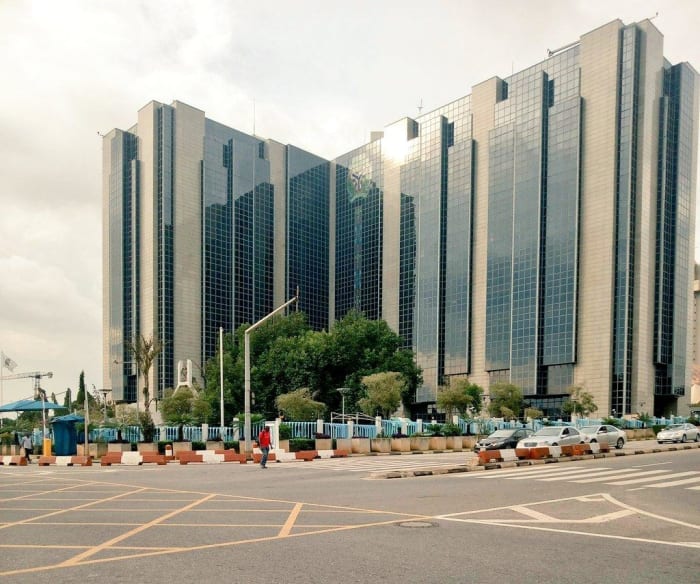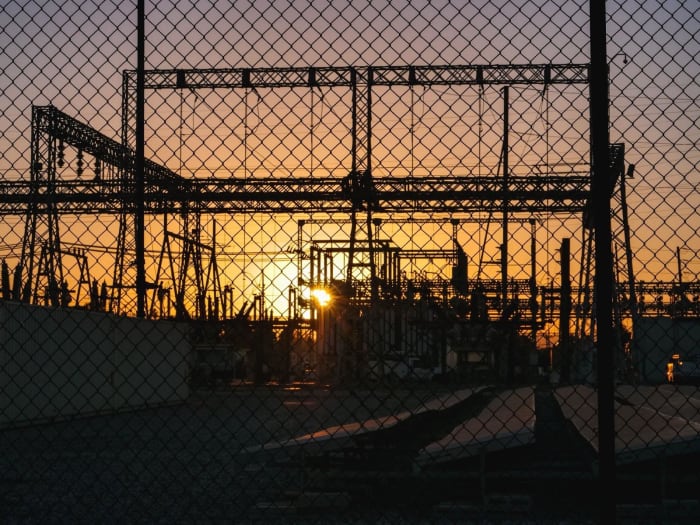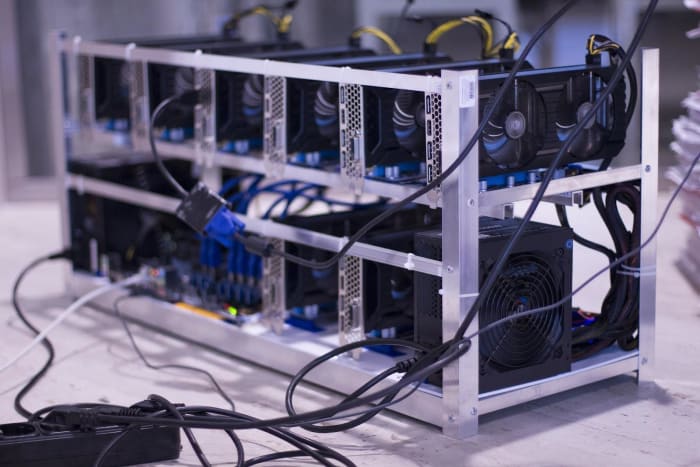Nigeria Bitcoin Miners Will Profit – Bitcoin Magazine
This is an opinion editorial by Emeka Ugbahhost of the podcast “Bitcoin This Blockchain That” based in Rwanda.
Imagine nursing a cup of coffee mocha at a coffee shop in Lower Manhattan. Then you overhear this African-looking fellow—who, from his face, confident demeanor, and high-energy voice, strikes you as a Nigerian—say he’s a Bitcoin miner. You will probably try to get a better view of the guy, because you immediately think that he is one of them – those scammers who slip into DMs, promising mouth-watering returns if you invest in their Bitcoin mining schemes. He can’t possibly be legitimate.
Yes, I would probably think the same if I was in the stall with you, even though I am a Nigerian.
We all know that Nigeria is considered the African nation with the highest adoption rate of bitcoin and cryptocurrencies – a story I love to tell. But with Bitcoin’s proof-of-work consensus mechanism in mind and how dependent it is on electricity, as well as the fact that Nigeria is not a reliable choice when it comes to cheap or stable electricity, it’s hard to imagine that any significant hash power could come from the country.
So in truth, you’d probably be right to think the guy isn’t legit. But should you?
Obstacles to Mining Bitcoin in Nigeria
Lack of reliable power
Nigeria is the 14th largest African country by land mass and its most populous, with a population of more than 200 million people, approximately 52% of whom live in urban areas. It is disturbing to know that these people must depend on the depressing 4,000 megawatts that the country’s power grid manages to generate.
I used the adjective “depressing” because that is the actual state of the power situation in the country. Homes and businesses – from small scale to large enterprises – are often forced to secure alternative power sources or risk staying in the dark and halting operations until the power returns. These alternative power sources, from gasoline and diesel-powered generators to solar power, are intended to serve as auxiliary power in typical scenarios. But in the case of Nigeria, they have now become the main source of power for many in the country.
So it is almost unthinkable that Bitcoin mining can be successful in the country. But it is – Nigeria actually contributes to Bitcoin’s global hash rate, and I’ll tell you how as we move forward with this conversation.
Unclear, border-hostile, regulatory landscape
As with nation-states, Nigeria’s stance on Bitcoin and cryptocurrencies has been somewhat combative.
We vividly remember that fateful Friday, February 5, 2021, when the apex bank, the Central Bank of Nigeria (CBN) issued a statement warning all financial service providers to suspend all bitcoin or cryptocurrency related transactions. And the warning didn’t end there: Banks were also asked to freeze the accounts belonging to any person or entity that had previously used the bank’s infrastructure as an entry or exit into and out of cryptocurrency exchanges.
Many accounts were subsequently frozen under the directive, forcing Nigerians to increasingly adopt the peer-to-peer system of value exchange, which was, after all, one of the reasons behind the creation of Bitcoin in the first place: the transfer of value from person to person, without the need for a trusted third party.
Despite the fact that Nigeria’s Securities and Exchange Commission (SEC) recently issued some regulations that appear to be a little less hawkish towards digital assets, things are still largely unclear as to what stance regulators will take on mining, especially because miners ( for lack of a better) term) “print money.”

Central Bank of Nigeria. Source.
Resilience among opponents
There are a multitude of things – great things – that Nigerians are known for, although some of the first things that come to mind when many think of Nigerians can be less than confidence-inspiring.
Yet it is also known by many that a Nigerian can survive, and even thrive, under the harshest conditions. This is evident in the fact that one in five people of African descent – found anywhere in the world, no matter how inhospitable the place – is a Nigerian.
As a Nigerian, I can attest to this resilience. We have this innate ability to adjust and adapt to almost any situation, almost anywhere we find ourselves. At this point in the conversation, the fact that there are Nigerians who have ventured into Bitcoin mining, decrying the weakening odds, shouldn’t be too much of a surprise, right?
It is challenging to determine exactly when the first ASIC based in Nigeria connected to the Bitcoin network, because miners there put a lot of effort into staying as off the radar as possible. And yes, I know that the hashrate generated from the country may not amount to so much as a blip or a pulse in the network. In fact, one rather controversial data source says that Africa as a whole contributes less than 0.2% of the global Bitcoin hash rate. However, the innovative efforts of Nigerian miners to secure the world’s most decentralized, censorship-resistant monetary system should not go unnoticed – their stories should not remain untold.
Stories from Nigerian Bitcoin Miners
When I started researching this topic, I was privileged to come into contact with a few people who mine Bitcoin in Nigeria. We had long conversations about how they got into it and how they manage to navigate through the challenges they constantly face. For security reasons, bordering on the hostile regulatory landscape I mentioned earlier, they chose to remain anonymous, so we will refer to them by pseudonyms.
The first person, let’s call him Kola. Relatively new to Bitcoin mining, Kola began his journey in September 2021 with just one unit of the Antminer S9, which he bought for around $450 to $500 at the time. According to him, he decided to take a stab at mining with that one ASIC, but has since expanded and bought seven others, all of which are Innosilicon T2THs, all bought as used miners from China and shipped to Nigeria. So, in order not to leave room for too many questions from the authorities, especially considering the fact that he is importing “money printing machines”, the ASICs were cleared through customs as computer graphics processing units (GPUs)
Kola chose not to disclose his location, but stated that his business is located somewhere in the north-central part of the country, near one of the country’s hydropower sources. As a result of being close to this large source of power that makes it relatively cheap, Kola spends as little as $15 to $20 monthly on electricity to run its operations. But since the “Nigerian factor” is still at play, he said he gets between 20 and 22 hours of power supply per day. Being solely dependent on the one power source means he is exposed to shutting down operations for between two and four hours each day.
Now, here’s another interesting bit: Due to the unclear regulatory state and to the local power authorities, Kola’s mining operation is written on the books as a facility that houses servers for cloud storage rental services. Interesting, isn’t it?
I had a long conversation with Kola and I can continue to describe everything we talked about, but this article is not only about my conversation with him, so I will end it here.
Now, the other person is a more experienced Bitcoin pleb, who has been in the space significantly longer than Kola. Let’s call him Gbenga. He asked me to keep much of what he shared with me about his setup off the record, so I’ll be more discreet about details here.
With several Antminer S9 ASICs, all bought as “second-hand” and imported from China, again as computer GPUs, Gbenga’s operation is located on the outskirts of the country’s largest business hub, Lagos. Like Kola, Gbenga started his mining venture with a much lower number of ASICs than he operates with now, and he has expanded exponentially, as he is a major player in the space.
Gbenga’s setup is one of the many businesses in the country that rely on alternative power sources for electricity, in his case a 200 KVA diesel powered generator. Now, in an ideal situation, this would not be an advisable venture, considering that the price per liter of diesel in the country is a little more than $1 at the time of writing, and his operation is going through 300 liters per year. day on average or, on days where it receives power from the grid, for about half the day. But Gbenga is connected to a few big people in the oil and gas industry, so he gets diesel at a much cheaper price than what is available in the open market.
According to Gbenga, his major challenge has been the constant need to maintain and repair the ASICs as they often develop power-related problems due to the unstable power supply. However, he has a team of skilled technicians and electricians, recruited from the pool of local talent, who initially had no experience working with ASICs, but as a result of working with Bitcoin mining and with Gbenga, have received the necessary the skills.
Future of Bitcoin Mining in Nigeria
There are so many other Bitcoin miners in Nigeria. Many of them were not enthusiastic about talking to me because they are concerned about their safety – with good reason too. However, that does not mean that there are not large players who are already in or are researching ways to enter the mining area.
We may still be a long way from Africa contributing a large portion of the global Bitcoin hash rate, but with individuals like Gbenga and Kola, as well as all the others in Nigeria and Africa as a whole, along with the ever-growing adoption of Bitcoin on the continent, it may not be so far away that the future may not be so distant.
The biggest challenge for the whole thing is funding. We all know how difficult it is to get a loan in the traditional financial space, especially in Nigeria – you have to know someone who knows someone. But the playground will definitely look different the moment corporate entities and large enterprises – from the telecom space, to banking and restaurant chains, who have tons of stranded power because they have to keep their facilities running 24/7 – realize what Bitcoin is. It incentivizes the use of stranded electricity, converts it with the proof-of-work protocol into a store of value with a deflationary supply, and provides asymmetric returns.
This is a guest post by Emeka Ugbah. Opinions expressed are entirely their own and do not necessarily reflect the opinions of BTC Inc or Bitcoin Magazine.





